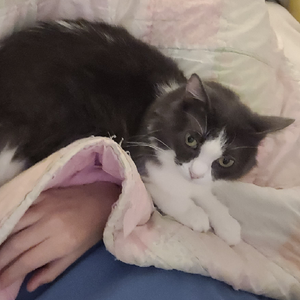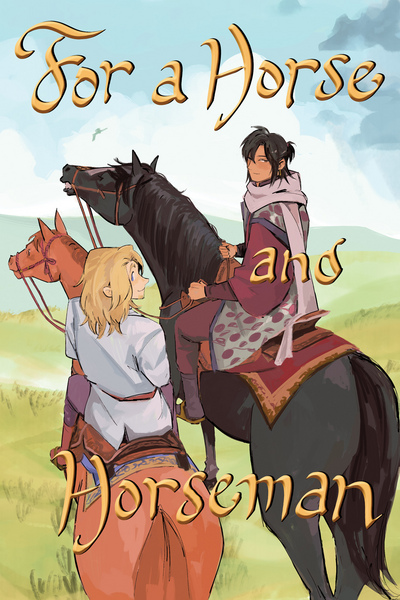A servant led him away towards the baths, speaking to him politely in Meskato and gesturing as they walked. Osmund tried his best to listen, though understanding was another matter.
More informatively, he observed that this complex had multiple wings: down the end of one gallery, scholarly types fiddled with books and scribbled on parchment, while in another, mages of the state in intricate costume discussed theory in animated tones. Uniformed soldiers in long, crisp tunics disappeared around a corner at the end of a hallway.
Eventually, they passed through a door and out onto a new section of the grounds, where lay the telltale shape of the bathhouse. The Meskato were fond of hot steam rooms, and theirs tended towards large public structures rather than the more private affairs favored by the nobility of Osmund’s homeland.
“Thank you,” he said, awkwardly nodding the smiling servant away once inside. Then he stripped off his dirty clothes and found a place in the steam room to be alone, where he sat in his tiny towel, doggedly ignoring the other men. (His royal status may have shielded him back on the Isles, but he didn’t know the prevailing attitudes towards people like him in this country, and he wasn’t yet ready to find out.)
Osmund sighed and leaned back on the wet tiles, the warm temperatures pulling, rather than coaxing, the tension out of his weakened body. His eyelids drooped. The ambient sounds of the bath seemed to ebb away. For one blissful moment his mind was completely empty.
Valcrest. The memory of home crept up on him like it so often did, but here in the steam it too had lost its sharp edges. Instead of cruel hands and bloodied knuckles, he remembered riding with his hardiest mare, Minerva, crossing swathes of hilly countryside for the thrill of it until his back ached the next day. He remembered the kind nursemaid who had been his only solace when Mother died, and the baker in town who used to regale him with the local wives’ gossip, as if he were just another customer.
He remembered his father and sister.
Osmund flinched. Thinking about his family was strictly off-limits. Remembering his horses was painful enough, and they might actually still be alive.
Evanor was dead. Father was dead. The throne of Valcrest was lost, with a necromancer queen sitting it.
That was the reason he’d ended up here. There was no going back. Not ever.
As much as a certain Tolmish merchant lord had tried to sell him on it.
Their journey to the Empire had been an accident of fate. That was the funny part.
While the castle burned and the howls of his subjects carried on the wind all the way to Saltbruck, Father marched Osmund in the direction of a docked vessel flying the three royal trout of Chantel. Two anonymous refugees in the clamoring crowd, they had pushed their way nearly to the gangplank—but then there was a man.
He was a fellow Tolmishman, a trader bound for Şebyan to the south, and even beneath their hoods, he recognized his sovereign and his prince. In urgent whispers, he spoke of a powerful benefactor: a certain self-styled “Lord” Pravin, a wealthy expatriate who had laid his roots deeply in that Meskato city. Readily Father accepted. It was only natural such a man would pledge loyal service to his king. And so, after a grueling ocean voyage, they arrived not in Chantel, but in the Meskato Empire. To the city of Şebyan. And then, eventually, to the palatial estate of Lord Pravin himself.
Their host’s manner was humble, at odds with his décor: the fruits of his extravagant success. Pravin looked them dead in the eye as assured them he had the connections in the Empire needed to gather a fleet and an army and re-take Valcrest for the rightful king. For a price was understood. Even with all his trappings of nobility he was, after all, just a merchant who knew how to bargain.
“Very well,” Father had groused, trying to seem displeased when Pravin had brought out his daughter, a lovely maid around Osmund’s age. “I suppose it is high time I take another wife.”
“A thousand pardons, Your Majesty,” Pravin had said, grinning ever so slightly at Osmund, “but I propose a different approach.”
“You’re ███.”
Osmund straightened in alarm, jolting back to the bathhouse. He somehow hadn’t noticed the immense orcish man taking a seat beside him on the smooth platform. “S-sorry?” he stammered in Meskato. “I…don’t understand.”
This new stranger wasn’t exactly handsome—he had a face that looked like it’d softened one too many punches—but his naked muscles flexed in the steam as he stretched out his body on the bench, and Osmund’s mouth went utterly dry. There was a neat scar down the side of his pale green bicep. One of the soldiers? he wondered, but it was hard to tell out of uniform.
“You are stress,” the orc said in broken Tolmish, smiling craggily. He must’ve recognized Osmund’s accent. “Very stress.” Then he chuckled. “Not now. Come, you relax. This is place for it!”
His laugh was so easygoing that Osmund laughed along with him, though he still felt a little tense. He didn’t know what this newcomer wanted from him. Sex, perhaps? He was certainly pent-up enough, but they’d have to go somewhere more discrete. “I’m Osmund,” he said, deciding it wasn’t worth the trouble to try and assume a new identity now that he’d already given his real name to the governor.
The orc shook his outstretched hand obligingly, though Osmund actually wasn’t sure that was a custom here. “Nienos,” he announced. “From Raughan. That way.”
At first Osmund thought Nienos was trying to get him to move, but in fact the orc was pointing in a seemingly random direction—the direction, one could only assume, of Raughan. Or it was just a joke. “You’re not from here either, then,” Osmund guessed.
“No. Raughan not part of empire, not yet. Soon, maybe. But emperor pays well.” He shrugged. “Wife back home not complain.”
Wife. Osmund couldn’t help feeling a little disappointed. Though he supposed it didn’t mean much of anything when it came to what men really wanted. “Are you a soldier?” he asked, curious.
“What is word? Ah—‘for hire’.”
A soldier for hire? “So, a mercenary!”
“That one, yes.” The massive fellow’s eyes drifted towards the ceiling as he sighed. “Used to be different job. Beasts in Meskat very angry now,” he said seriously. “Attack people, kill many people.” Osmund had heard something similar. He remembered rumors back when he was a Tolmish prince in Valcrest that the magical creatures of the Empire’s wild places were attacking remote villages and savaging caravans in broad daylight. The animals must’ve felt threatened to behave in such extreme ways; Osmund almost felt bad for them, though he was careful not to say this because he’d quickly learned that it wasn’t popular to side with beasts over people. “But means steady work!” the orc concluded with another toothy grin.
“Can I ask you a question?” Nienos leaned in, and so Osmund continued: “What do you think of the governor?” At the soldier (or mercenary?)’s uncomprehending expression—he must not know the Tolmish term—Osmund tried again. “The, um,” he tried to remember the sound of the word he’d heard before, though he still didn’t quite know what it meant, “‘shehzadeh’?”
This time, Nienos understood. His face became—Osmund didn’t know how to read it, to be honest. He was smiling, but it wasn’t the governor’s small, brilliant smile, nor was it the orc’s previous easy mirth.
“Killer,” Nienos said, with that strange expression that Osmund knew he did not like. “Very very good killer, is Şehzade Cemil.”
“Killer?” Osmund echoed back in alarm. He remembered his host’s callused feet, his strong-looking body. “Oh—you mean a soldier, like you.”
“No, not mean soldier, no.” And just like that, the orc again shrugged. “Is nice, from distance. But unimportant man like you and me, stay away. Is all I say.”
Osmund left the bathhouse, his clammy skin becoming chilled in the advancing hour. There were noises from the main manor nearby, the sounds of civil servants ending their day, he supposed.
He’d made his excuses to Nienos, not really caring anymore whether his companion were amenable to physical pastimes. He’d meant to do—something, once he was out in the open air.
What? Go home? He had no home. A hovel and a fallen kingdom, that was it.
He could try and find a new job, and then what? Fall into the lap of yet another dangerous man?
All his life, anything too good to be true had appeared with a curse, a punishment from the heavens for daring to presume himself worthy. If a curse was proportional to how lovely a thing seemed on the outside, he shuddered to imagine the kind of misfortune a man as beautiful as Şehzade Cemil (‘Jemy’? ‘Jamil’? …He wasn’t quite sure how to spell it) could bring.
Nienos’ warning echoed. Killer. That’s what he’d named Osmund’s host.
Might Osmund prefer a killer to whatever else was waiting for him out there in the world?
As he drew closer to the main gate, he stopped suddenly in his tracks. Excited figures swarmed around one of the front entrances, many of them shouting. It was the kind of shouting one heard back in the kingdom before something (or someone) got set on fire.
On his back in the dirt was a human man, struggling to rise against the mass of people who restrained him. His face was frozen in fear as a shadow from within the main hall stepped closer and closer, swallowing more and more of the firelight. The shadow belonged to Şehzade Cemil, and his beauty was transformed with an arced sword in his hand. The blade shimmered with fire: an enchanted weapon. He stood in the entryway, hilt gripped tight, looking like an image of vengeance. Even from here, Osmund could see the intent in his eyes.
Osmund’s disillusioned old tutor liked to claim he retained nothing he’d been taught, but in this moment he had a sudden flashback to one of his lessons. The Meskato Empire, he’d learned (while daydreaming about riding), had a judicial system, with a process. Those accused of crimes did not face the peoples’ justice or the whims of a local lord, like they might in a small hamlet on the Tolmish Isles, but instead could make their case in court, to be judged by the most enlightened of their countrymen.
It was a nice notion.
Then, almost faster than he could see, the şehzade’s sword flashed, and the man crumpled. Blood sprayed in a ring on the trampled ground.
A nice notion indeed, Osmund thought. And then, he fainted.











![[Ch3] Hot Water](https://us-a.tapas.io/sa/31/f9b7ad6a-6df7-46b5-8f58-6d0b0dce40e2.jpg)
Comments (15)
See all